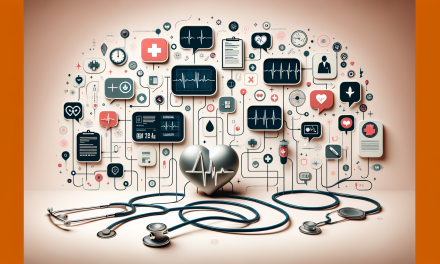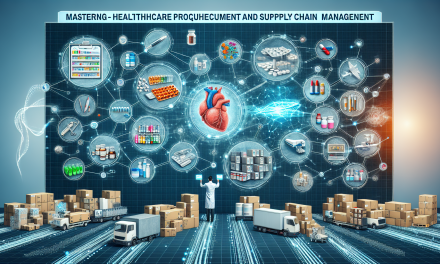Table of Contents
- Introduction
- The Importance of Strategic Healthcare Management
- Key Skills and Competencies in Healthcare Management
- Effective Communication in Healthcare
- Enhancing Healthcare Engagement
- Mastering Healthcare Communication
- Real-World Applications of Strategic Healthcare Management
- FAQs
- Conclusion
Introduction
Strategic healthcare management represents a crucial aspect of the healthcare industry. In today’s dynamic environment, professionals equipped with vital management skills can significantly influence the effectiveness and efficiency of healthcare delivery. Therefore, mastering these skills becomes vital. As we dive into this comprehensive discussion, we will explore the essential components of strategic healthcare management, ensuring that you, as a healthcare professional, are prepared to thrive in an ever-evolving industry.
The Importance of Strategic Healthcare Management
In a rapidly changing world, healthcare systems face unprecedented challenges. Be it the integration of technology, the rising costs of care, or the need for enhanced patient outcomes, strategic management becomes paramount. Professionals need to develop a keen understanding of both operational and strategic frameworks. By doing so, they align healthcare objectives with patient-centered approaches, consequently improving the quality of care.
Moreover, strategic management fosters an environment conducive to effective decision-making. By prioritizing innovative strategies, healthcare organizations can position themselves to adapt to industry changes promptly. Essentially, it builds resilience and ensures sustainability.
Key Skills and Competencies in Healthcare Management
Healthcare management involves a plethora of skills that are central to success in this sector. First and foremost, professionals must exhibit strong leadership qualities. Effective leaders inspire teams, promote collaboration, and navigate through conflicts efficiently.
Analytical Skills
In addition, analytical skills play a significant role. Healthcare managers often deal with diverse data sets, requiring the ability to interpret, analyze, and make informed decisions. The integration of data analytics can lead to improved operational efficiencies, ultimately benefiting patient care.
Financial Acumen
Furthermore, having a firm grasp of financial management practices is indispensable. Managers juggle budgets, financial forecasts, and resource allocation. Understanding these elements ensures that healthcare organizations can maintain financial health while continuously improving patient services.
Regulatory Knowledge
Regulatory knowledge is another cornerstone of effective healthcare management. Professionals must stay updated on local, national, and international regulations. Compliance not only avoids legal pitfalls but also reinforces patient trust in healthcare systems.
Effective Communication in Healthcare
Strong communication skills cannot be overstated in healthcare settings. Healthcare providers often serve diverse populations, making it essential to convey information clearly and effectively. Additionally, they must ensure that communication extends beyond verbal interactions.
Building Relationships
Building robust relationships with stakeholders—including patients, staff, and other healthcare professionals—strengthens collaborative efforts. Efficient communication fosters a sense of community, leading to more positive healthcare experiences.
Utilizing Technology
Technology has transformed communication in healthcare. With various digital tools available today, professionals can optimize interactions, ensuring seamless information flow. Familiarizing oneself with relevant technologies can enhance the overall efficiency of communication efforts.
Enhancing Healthcare Engagement
Involving patients in their own care processes is crucial. Engaged patients tend to follow treatment plans more diligently, leading to better health outcomes. Consequently, fostering engagement becomes a priority for healthcare managers.
Enhancing Healthcare Engagement: Essential Public Relations & Communication Skills for Hospitals
Additionally, understanding various engagement strategies offers insights into optimizing patient experience. Personalized approaches provide patients with a sense of ownership over their health, thus encouraging proactive behaviors.
Mastering Healthcare Communication
Effective healthcare communication goes beyond addressing patients’ needs. It also requires healthcare professionals to engage in continuous learning. Keeping abreast of evolving communication strategies and the latest industry practices enhances overall effectiveness.
Mastering Healthcare Communication: Essential Skills for Professionals
Furthermore, understanding cultural competencies allows healthcare managers to tailor their approaches to diverse populations, ensuring that everyone receives appropriate care.
Real-World Applications of Strategic Healthcare Management
When considering the real-world applications of strategic healthcare management, one must recognize that it extends beyond the theoretical realm. Professionals apply learned skills to actual challenges that arise in healthcare settings daily.
For example, effective conflict resolution within teams leads to a harmonious work environment. Health systems benefit when staff collaborates effectively, and patient care improves as a result. Besides, adaptability in responding to external challenges, such as regulatory changes or technological advancements, signifies a robust healthcare management approach.
For those interested in expanding their knowledge, resources such as the Strategic Healthcare Management Training & Certification Course can prove invaluable.
FAQs
What are the benefits of strategic healthcare management?
Strategic healthcare management provides numerous benefits, including improved patient outcomes, streamlined operations, enhanced team collaboration, and better financial performance. Ultimately, these factors contribute to a more efficient healthcare system.
How can one improve their healthcare management skills?
Improving healthcare management skills requires continuous learning and practical experience. Engaging in relevant training, networking with industry professionals, and seeking mentorship are effective ways to develop these skills.
Why is effective communication critical in healthcare?
Effective communication is crucial because it fosters understanding and trust between patients and providers. It also enhances collaboration among team members, leading to improved healthcare delivery.
Conclusion
In conclusion, mastering strategic healthcare management is essential for professionals aiming to succeed in the modern healthcare environment. By developing key skills—including leadership, analytical thinking, financial acumen, and effective communication—individuals can navigate the complexities of healthcare effectively. With the right training and mindset, any healthcare professional can excel in their roles and ultimately contribute to a healthier society.




